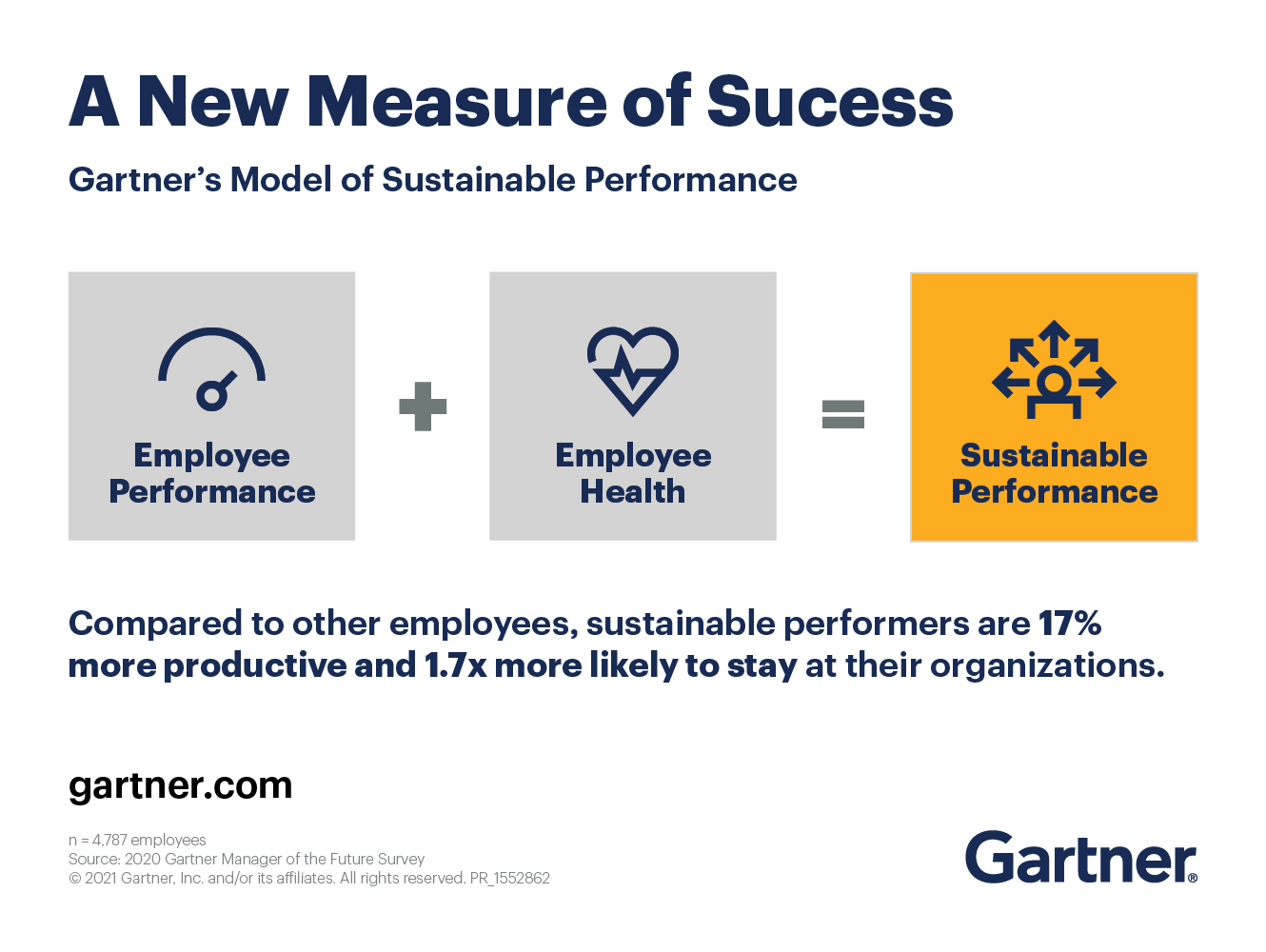How Middle Managers Drive Performance And Improve Employee Satisfaction

Table of Contents
The Role of Middle Managers in Performance Improvement
Middle managers play a pivotal role in translating organizational strategy into actionable plans and driving tangible results. Their ability to effectively manage their teams directly impacts overall productivity and achievement of company goals.
Setting Clear Expectations and Goals
Establishing clear expectations and goals is fundamental to driving performance. This involves:
- Clearly defined roles and responsibilities: Each team member should understand their specific contributions and how they fit into the bigger picture. Job descriptions should be precise and regularly reviewed.
- SMART goals (Specific, Measurable, Achievable, Relevant, Time-bound): Goals need to be concrete, measurable, and attainable within a defined timeframe. Using a SMART goal framework ensures everyone is working towards shared, realistic objectives.
- Regular performance reviews and feedback sessions: Consistent feedback, both positive and constructive, is crucial for continuous improvement. Regular reviews provide opportunities for open dialogue and goal adjustments.
- Utilizing performance management software for tracking and reporting: Tools like performance management software can streamline the goal-setting, tracking, and review processes, providing valuable data-driven insights.
- Examples of effective goal-setting strategies for different team structures: Tailor goal-setting strategies to the unique dynamics of each team. For example, a project-based team may require different goals than a customer service team.
Fostering a Culture of Collaboration and Teamwork
A collaborative work environment is essential for driving performance. Middle managers can foster this by:
- Promoting open communication and feedback channels: Encourage open dialogue, active listening, and regular team meetings to ensure everyone feels heard and involved.
- Encouraging team building activities and events: Team-building exercises can improve communication, trust, and collaboration within the team.
- Utilizing collaborative tools and technologies: Leverage project management software, communication platforms, and other collaborative tools to enhance teamwork.
- Delegating effectively and empowering team members: Empower team members by delegating tasks appropriately and providing the autonomy to complete them. This fosters a sense of ownership and responsibility.
- Addressing conflict constructively and fairly: Middle managers must address conflicts swiftly and fairly, ensuring a respectful and productive resolution.
Providing Effective Training and Development
Investing in employee development is crucial for improving team performance. Middle managers can contribute by:
- Identifying skill gaps within the team: Regularly assess team members' skills and identify areas needing improvement.
- Implementing tailored training programs: Develop and implement training programs addressing identified skill gaps, focusing on both hard and soft skills.
- Mentoring and coaching employees for professional growth: Provide mentorship and coaching to help employees develop their skills and advance their careers.
- Encouraging continuous learning and development opportunities: Promote a culture of lifelong learning by encouraging employees to pursue additional training and development opportunities.
- Utilizing online learning platforms and resources: Leverage online learning platforms and resources to provide accessible and cost-effective training options.
Middle Managers and Employee Satisfaction
Employee satisfaction is directly linked to productivity and retention. Middle managers play a crucial role in cultivating a positive work environment.
Building Strong Relationships and Trust
Strong relationships are the foundation of a positive work environment. Middle managers can achieve this by:
- Active listening and empathy: Demonstrate genuine interest in team members' perspectives and concerns.
- Regular one-on-one meetings: Schedule regular one-on-one meetings to discuss individual progress, challenges, and career aspirations.
- Recognizing and rewarding employee contributions: Acknowledge and appreciate team members' efforts and accomplishments, both big and small.
- Creating a positive and supportive work environment: Foster a culture of respect, inclusion, and psychological safety.
- Demonstrating fairness and consistency in decision-making: Ensure that decisions are made fairly and consistently, promoting trust and transparency.
Promoting Work-Life Balance and Well-being
Employee well-being is paramount to job satisfaction. Middle managers can contribute by:
- Encouraging employees to take breaks and utilize vacation time: Promote a healthy work-life balance by encouraging employees to take breaks and use their vacation time.
- Implementing flexible work arrangements where possible: Consider flexible work arrangements, such as remote work or flexible hours, where feasible.
- Prioritizing employee well-being and mental health: Promote employee well-being through initiatives such as wellness programs and mental health resources.
- Providing access to employee assistance programs (EAPs): Offer access to employee assistance programs (EAPs) to provide support for employees facing personal or work-related challenges.
- Promoting a healthy work-life integration strategy: Encourage strategies that help employees integrate work and personal life effectively.
Addressing Employee Concerns and Feedback
Open communication and addressing concerns are crucial for employee satisfaction. Middle managers should:
- Establishing open channels for communication: Create multiple channels for communication, ensuring employees feel comfortable expressing their thoughts and concerns.
- Actively soliciting and addressing employee feedback: Regularly solicit feedback through surveys, one-on-one meetings, and team discussions.
- Creating a culture of psychological safety: Foster a culture where employees feel safe to voice their opinions and concerns without fear of reprisal.
- Addressing employee concerns promptly and fairly: Respond to employee concerns promptly and fairly, demonstrating a commitment to resolving issues effectively.
- Implementing mechanisms for resolving workplace conflicts: Establish clear procedures for addressing and resolving workplace conflicts constructively.
Strategies for Empowering Middle Managers
Empowering middle managers is crucial for achieving high performance and employee satisfaction.
Providing Adequate Resources and Support
Middle managers need the necessary resources and support to succeed. Organizations should:
- Providing access to necessary tools and technologies: Equip middle managers with the tools and technologies they need to effectively manage their teams.
- Offering sufficient budget allocation: Provide adequate budget allocation to support team initiatives and training programs.
- Providing ongoing training and development opportunities: Invest in ongoing training and development opportunities for middle managers to enhance their skills and knowledge.
- Creating clear lines of communication and decision-making authority: Establish clear lines of communication and decision-making authority to empower middle managers.
- Offering mentorship and coaching from senior leadership: Provide mentorship and coaching from senior leadership to support middle managers' professional growth.
Fostering a Culture of Accountability and Recognition
A culture of accountability and recognition motivates middle managers and their teams.
- Holding middle managers accountable for their teams' performance: Establish clear performance expectations and hold middle managers accountable for their teams' results.
- Recognizing and rewarding their contributions to the organization: Acknowledge and reward middle managers' contributions to the organization's success.
- Providing opportunities for professional advancement: Offer opportunities for professional advancement to motivate and retain high-performing middle managers.
- Creating a culture of trust and mutual respect: Foster a culture of trust and mutual respect between middle managers and senior leadership.
- Promoting open feedback and constructive criticism: Encourage open feedback and constructive criticism to support continuous improvement.
Conclusion
Investing in the development and empowerment of middle managers is crucial for driving both performance and employee satisfaction. By focusing on clear goal setting, fostering collaboration, promoting employee well-being, and providing adequate resources, organizations can unlock the full potential of their middle management team. This ultimately leads to a more engaged, productive, and successful workforce. Don't underestimate the impact of effectively trained and supported middle managers in driving performance and improving employee satisfaction within your organization. Implement these strategies today and see the positive impact on your bottom line and employee morale. Start empowering your middle managers to drive performance and improve employee satisfaction now!

Featured Posts
-
 Champion Bayern Mullers Last Home Match Ends In Victory
May 12, 2025
Champion Bayern Mullers Last Home Match Ends In Victory
May 12, 2025 -
 Sylvester Stallones Near Miss A Disastrous Crime Thriller Sequel
May 12, 2025
Sylvester Stallones Near Miss A Disastrous Crime Thriller Sequel
May 12, 2025 -
 Judge Considers 2026 Wbc Analyzing His Potential Participation
May 12, 2025
Judge Considers 2026 Wbc Analyzing His Potential Participation
May 12, 2025 -
 Escalating Tensions Five Indian Soldiers Killed Near India Pakistan Border
May 12, 2025
Escalating Tensions Five Indian Soldiers Killed Near India Pakistan Border
May 12, 2025 -
 Friendship And Triumph Shane Lowrys Support For Rory Mc Ilroy
May 12, 2025
Friendship And Triumph Shane Lowrys Support For Rory Mc Ilroy
May 12, 2025
